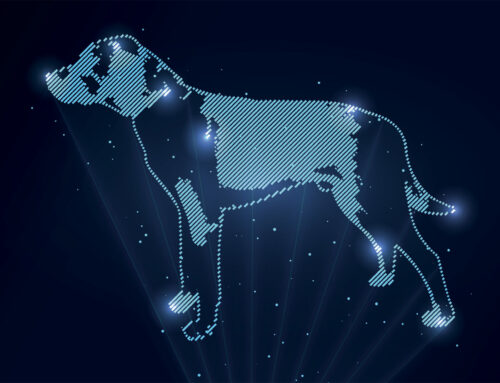
 Chris Conway
Chris Conway
Chief Architect, Quantiv
You’ll know the phrase ‘a picture’s worth a thousand words’, used to express how a single still image can tell a story just as well as, if not better than, many written words.
But I don’t fully agree with this adage, and here’s why…
Yes, a picture’s good but it’s not perfect. That’s because it can only show so much. More specifically, it only shows a position at a single point in time.
What an image doesn’t show – and indeed where words may work better – is how that state came to be. In effect, it’s missing the story, or ‘lineage’.
Why a single image isn’t enough
My argument isn’t that words are necessarily mightier than an image. Instead, I’m suggesting that if a picture is worth a thousand words, then a series of snapshots is worth more than a single image.
Think of those scrawled whiteboard designs that made sense while they were being created but are almost impenetrable later, even to those who were there. Or the smooth outline of a car that hides the complexity underneath the exterior and the number of steps that went into its construction. Or even an actual novel, because however tempting it might be to skip to the last page, doing so will deprive you of the full, satisfying experience of reading a story from start to finish.
However, this isn’t to also argue that a recording, a Haynes Manual, or a paperback is implicitly more powerful than a picture.
Being able to see a progression in real time might feel involving, but it’s all too easy to forget what happened in earlier scenes. Comparisons are almost impossible, and the tension of asking a viewer to imagine what could have happened evaporates (for example, compare the film ‘Girl with a Pearl Earring’ with the original oil painting).
Instead, it’s perhaps an argument for the power of picture books. Or, to use a more grown-up example, those assembly instructions included with flat-pack furniture. (OK, I know no-one understands the instructions with flat-pack furniture but bear with me.)
The value of precise information
Tension is, usually, an essential ingredient in a great work of art. But when running an organisation, you don’t want to rely on simply imagining what could have happened.
Instead, you need the knowledge of what actually happened, and more importantly, how it compares to what’s happened before.
And so while it’s important to know the current position, i.e. the ‘picture’, understanding its ‘story’ from inception to the current state is much more significant in deciding future direction.
Why operational metrics matter
Operational metrics provide a way to measure today’s organisational state – the current position – and provide a way to compare it against snapshots of the position in the past, so the story emerges.
They also define the data sources, calculations, transformations and real-life ‘nudges’ that have influenced decisions. So, they provide a definitive understanding of how the metrics were derived.
Tracing the operational metrics’ lineages allows the contributing factors and events that have affected current metric values to be seen. In turn, this enables problems to be diagnosed and different operational parameters to be understood and therefore influence future decisions.
And by understanding the lineage of operational metrics, organisations can measure current values against past performance, and so identify trends and measure progress. And this means realistic objectives can be set, both for future performance and improvements.
But you can only use operational metrics in this way if the sources of information and their storage can be trusted. Organisations need to be able to identify potential data anomalies or errors, and they can only do this if the metrics are reliable, accurate and trustworthy.
While such data governance is good practice generally, in some industries it’s a compulsory requirement. Being able to provide the history of a metric enables compliance with regulatory standards and makes audits against those standards more efficient.
Helping you capture and expose your critical data
Quantiv's NumberWorks method and NumberCloud service can help your organisation identify, collect, store and expose its operational metrics.
And by working in this way, you can introduce a new twist on the expression: ‘If a picture’s worth a thousand words… then a story’s worth a gallery of pictures.'
To find out more, chat to our team today on 0161 927 4000 or email: info@quantiv.com




